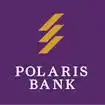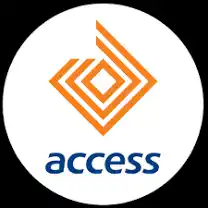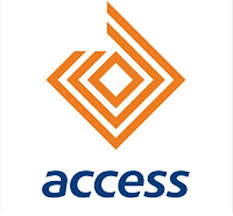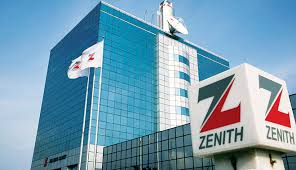List of Islamic Banks in Nigeria: Their Origin, Growth and Details – How Does Islamic Banks Work?
Islamic banks in Nigeria are financial institutions that primarily operate in accordance with Islamic principles and ethics.
Just like their conventional counterparts, these banks offer a wide range of financial services and products to individuals, businesses, and the community at large. However, what sets Islamic banks apart is their commitment to adhering to Shariah law, which governs their operations and decision-making processes.
Islamic banks in Nigeria follow a unique framework that aligns with the principles of Islamic finance.
These principles promote ethical and responsible financial practices, emphasizing fairness, justice, and risk-sharing.
This means that Islamic banks avoid engaging in activities that are considered prohibited in Islam, such as charging or paying interest (riba) and investing in industries that are deemed unethical, such as gambling, alcohol, or pork.
Instead, Islamic banks in Nigeria employ various alternative modes of finance to meet the needs of their customers.
One common method is profit-sharing (mudarabah), where the bank and its customers enter into a partnership to share profits and losses based on pre-agreed terms.
Another approach is cost-plus financing (murabahah), where the bank purchases an asset on behalf of the customer and sells it back at an agreed-upon price, including an agreed profit margin.
Another thing you may want to know is the List of Islamic Banks in Nigeria: Their Origin, Growth, and Details, everything has been fully analyzed below:
The Origin of Islamic Banks in Nigeria
The establishment and subsequent expansion of Islamic banking in Nigeria have significantly contributed to the financial landscape of the country.
Islamic banking, rooted in the principles of Islamic law, emerged in Nigeria in the late 1990s and early 2000s in response to the increasing demand for financial services that align with Islamic beliefs.
Islamic banking traces its origins back to the early days of Islam, but it gained momentum in Nigeria relatively recently. As Nigeria boasts a substantial Muslim population, there was a growing need for banking institutions that catered to the specific requirements of Islamic law.
In 2003, the first Islamic bank in Nigeria was established, marking a significant milestone in the country’s financial history.
Growth and Popularity of Islamic Banking in Nigeria
In recent years, Islamic banking in Nigeria has experienced remarkable growth and increasing popularity.
The surge in demand for ethical and transparent financial services, coupled with a heightened awareness of the benefits offered by Islamic banking, has been instrumental in driving this growth.
Today, Nigeria is home to a diverse range of Islamic banks that cater to the needs of Muslim customers seeking financial solutions in line with their religious beliefs. Among the prominent Islamic banks operating in Nigeria are Jaiz Bank, Al Baraka Bank, Islamic Development Bank (IDB) Nigeria, Nigeria International Islamic Finance (NIIF), First Islamic Investment Bank of Nigeria (FIIB), and Al-Muntada Islamic Investment Bank.
Read: How To Get A Loan From Zenith Bank In Nigeria With or Without Collateral in 2023
These banks have definitely established themselves as reliable and trustworthy institutions, offering a wide array of Shariah-compliant products and services to meet the financial needs of individuals, businesses, and the broader economy.

List of Islamic Banks in Nigeria: their Origin, Growth and Details
Below is the list of Islamic banks in Nigeria:
Jaiz Bank
The first and earliest of the list of Islamic banks in Nigeria is Jaiz Bank.
Jaiz Bank is the pioneer and leading Islamic bank in Nigeria.
It was established in 2003 and commenced full operations in 2012 after obtaining a license from the Central Bank of Nigeria (CBN).
Jaiz Bank offers a range of Sharia-compliant banking products and services to individuals, businesses, and institutions.
Its headquarters is located in Abuja, Nigeria’s capital.
Taj Bank
Taj Bank is a relatively new Islamic bank in Nigeria, established in 2019.
It aims to provide ethical and innovative banking solutions to its customers.
Taj Bank operates based on the principles of Islamic finance, offering services such as current accounts, savings accounts, investment accounts, and trade finance solutions. It has its headquarters in Abuja.
Lotus Bank
Lotus Bank is yet another prominent Islamic financial institution in Nigeria.
It was established in 2017 and is committed to providing ethical and Sharia-compliant banking services.
Lotus Bank offers various products and services, including current accounts, savings accounts, investment accounts, trade finance, and treasury services.
The bank’s headquarters is located in Lagos, Nigeria’s commercial hub.
SunTrust Bank
SunTrust is also not left out of the list of Islamic banks in Nigeria.
SunTrust Bank is a commercial bank in Nigeria that offers Islamic banking services alongside conventional banking.
It obtained a license from the CBN in 2015 to operate as a full-fledged commercial bank.
SunTrust Bank primarily provides Sharia-compliant banking services such as current accounts, savings accounts, investment accounts, trade finance, and treasury services.
Jabeer Investment Company Limited
Jabeer Investment Company Limited is an Islamic finance institution in Nigeria.
It operates as an investment company, providing capital and investment opportunities to individuals and businesses in compliance with Sharia principles.
Jabeer Investment Company Limited offers investment advisory services, project financing, and venture capital funding.
Halal Investment Limited
Halal Investment Limited is an Islamic finance company that specializes in halal investment opportunities.
It offers various investment products and services, including real estate investment, equity investment, and commodity trading.
Halal Investment Limited aims to provide ethical investment options in line with Islamic principles.
TrustBank Takaful
TrustBank Takaful is a subsidiary of TrustBank Plc, a commercial bank in Nigeria. TrustBank Takaful offers Takaful (Islamic insurance) products and services to individuals and businesses.
Read Also: How To Get A Loan From Stanbic IBTC Bank In Nigeria With or Without Collateral in 2023
It operates based on the principles of mutual cooperation and risk-sharing.
TrustBank Takaful provides coverage for life, health, motor, travel, and other types of insurance.
Coronation Merchant Bank
Coronation Merchant Bank is a leading financial institution in Nigeria that offers both conventional and Islamic banking services.
The bank established its Islamic banking arm known as Coronation IB in 2014 to cater to the growing demand for Sharia-compliant financial products and services.
Coronation IB provides Islamic banking solutions, including trade finance, treasury services, and investment advisory.
Al-Barakah Microfinance Bank
Al-Barakah Microfinance Bank is another microfinance institution in Nigeria that operates on Islamic finance principles.
It provides microfinance services to entrepreneurs and small-scale businesses, aiming to alleviate poverty and promote financial inclusion.
Al-Barakah Microfinance Bank offers Sharia-compliant microfinance products, including savings accounts, loans, and investment opportunities.
FAQs On List of Islamic Banks in Nigeria: their Origin, Growth and Details
Below are FAQs on list of Islamic banks in Nigeria:
Which bank is Islamic bank in Nigeria?
As you can see in the article, the Islamic bank isn’t limited to one, rather there are many of them.
Where to get Islamic loan in Nigeria?
To obtain an Islamic loan in Nigeria, you can consider approaching banks that offer Islamic banking services or products through their Islamic banking windows.
Can I borrow money from Islamic bank?
Yes, you can borrow money from an Islamic bank, subject to their terms and conditions.
Islamic banks operate based on Shariah principles, which prohibit the payment or receipt of interest (riba).
Instead, Islamic banks provide financing through alternative structures, such as profit-sharing agreements (Mudarabah), cost-plus financing (Murabaha), or leasing (Ijarah), among others.
These structures allow individuals and businesses to access funds without involving interest-based transactions.







